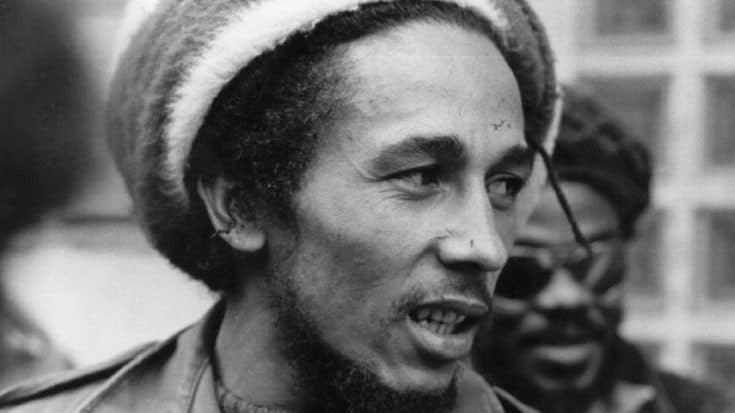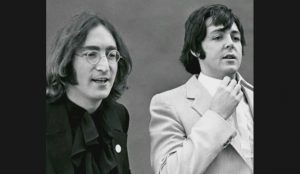The Strange Conspiracy Theory About Bob Marley’s Death

via Grunge / Youtube
Bob Marley, the reggae icon whose music transcended borders and sparked global love for the genre, left behind a vibrant legacy. But his life wasn’t without challenges. He survived a harrowing assassination attempt in 1976, and a year later, faced the diagnosis of acral lentiginous melanoma.
His decision to follow his Rastafarian beliefs and not amputate his toe, while inspiring, ultimately allowed the cancer to spread. Sadly, at the young age of 36, he succumbed to the disease in 1981.
Despite the official cause of death, some fans refused to accept it, clinging to the belief that his life was cut short by something more sinister. Conspiracy theories arose, fueled by claims from certain individuals. However, these claims have been thoroughly debunked.
Read on as we explore the enduring power of Bob Marley’s music and the strange narratives that have swirled around his death. We’ll separate fact from fiction and celebrate the reggae legend whose music continues to inspire millions even today.
A previous attempt on his life probably fueled this conspiracy theory
The legend of Bob Marley extends beyond his catchy melodies and powerful messages of unity. A closer look reveals darker threads woven into his story. In 1976, just before a concert aimed at healing political divisions, Marley survived an assassination attempt, leaving him physically and emotionally scarred. This event cast a long shadow, fueling speculation that his later death wasn’t simply due to illness.
Years later, conspiracy theories emerged surrounding Marley’s passing. One such theory, popularized by social media in 2019, hinged on the alleged deathbed confession of a man claiming to be a CIA agent named “Bill Oxley”. This man claimed to have poisoned Marley through a pair of Converse sneakers.
While intriguing, this theory lacked any real evidence and was ultimately debunked. Yet, it highlighted the enduring fascination with alternative narratives surrounding the reggae icon’s death.
Why did such theories capture the imagination of some fans? This question deserves exploration, allowing us to understand the complex legacy of Bob Marley and the power of music in the face of tragedy.
https://twitter.com/redstreamnet/status/1754935506176246111
The cancer-causing pair of shoes that “killed” Bob
Fueling the flames of conspiracy was a social media post that emerged via an Instagram page named “Liberty Lou” sharing a story corroborating that a CIA agent was indeed involved. This confession alleged that Marley was deliberately targeted due to his Rastafarian beliefs.
According to the post, the agent’s son was used as a pawn to gain access to Marley. Disguised as a “USA photographer”, he supposedly offered Marley a pair of shoes as a gift. As Marley tried them on, he cried out in pain, leading to the discovery of a “pointed copper/metal” object concealed within. The post speculated it was either radioactive or poisoned.
The claim linked this incident to Marley’s later cancer diagnosis, suggesting it appeared just five months after this encounter, triggered by a fellow football player accidentally stepping on his toe. Finally, the post concluded by connecting the dots, alleging the “photographer” was actually the CIA agent’s son, acting on his father’s orders.
While this story lacked any concrete evidence and was ultimately debunked, it highlighted the intricate web of theories surrounding Marley’s death. It’s crucial to dissect these narratives, separating fact from fiction, to fully understand the complex legacy of the reggae legend and the lasting impact of his music.
And, of course, they came from dubious sources
The “Liberty Lou” post wasn’t the only source fueling the conspiracy fire. Another claim of a very similar story originated from a 2017 article on a website known for unreliable content. This article, titled “CIA Agent Confesses On Deathbed: ‘I Killed Bob Marley'”, purported to feature the deathbed confession of a “79-year-old retired CIA officer” named Oxley.
According to the article, Oxley confessed to 17 assassinations, including Marley’s, motivated by the musician’s growing fame and influence, which clashed with the CIA’s interests. The article even went as far as saying Marley “signed his own death warrant” by supporting causes that opposed the agency.
However, this version differed from the “Liberty Lou” post in its execution. Instead of the photographer’s son, the article claimed Oxley himself posed as the photographer and injected Marley with a cancer-causing substance.
Despite the sensational claims, the website’s own head eventually admitted its unreliability. In 2020, he acknowledged they stopped publishing such “unreliable conspiracies” due to concerns about fact-checking and editorial responsibility. This casts a shadow on the credibility of the entire narrative, highlighting the importance of critically analyzing information before accepting it as truth.
https://twitter.com/bobmarley/status/1748803829259538593
The theory was thoroughly debunked
While these conspiracy theories gained traction online, thorough investigation quickly debunked them. USA Today fact-checked the claim and found no evidence of a “Billy Oxley” or anyone similar ever existing within the CIA. Reputable fact-checkers like Snopes and 4News also found no record of any such individual.
Adding to the red flags, the source of the initial claim, Your News Wire, was later labeled a fake news website. The narrative itself contained inaccuracies, like referring to Marley as a “Jamaican Rastaman”, undermining its credibility further.
Despite these glaring signs, the story was revived and shared by celebrities like Busta Rhymes and T.I. in 2018, highlighting the power of social media in spreading misinformation. Additionally, the “Liberty Lou” Instagram page sharing another version of the theory was linked to QAnon and Deep State conspiracy circles, further raising concerns about its reliability.
While sensational stories may capture attention, verifying their sources and factual basis is crucial in separating truth from fiction, especially when dealing with sensitive topics like the death of a beloved icon like Bob Marley.
A music icon that brought Jamaica and reggae to the world
Beyond his infectious melodies and global reggae influence, Bob Marley was a multifaceted icon. Together with The Wailers, he masterfully blended the vibrant spirit of Jamaica with reggae, ska, and rocksteady rhythms.
His lyrical prowess added depth and meaning, creating timeless anthems like “No Woman, No Cry”, “One Love”, and “Three Little Birds”. Eric Clapton’s cover of “I Shot the Sheriff” further fueled his meteoric rise.
But Marley’s impact transcended music. He became a champion for the people, actively campaigning for democratic reforms in Jamaica, advocating for marijuana legalization, and promoting Pan-African unity. His unwavering dedication and powerful voice earned him the adoration of millions.
Tragically, his journey was cut short. On May 11th, 1981, melanoma claimed his life, leaving behind a legacy of love, unity, and a fight for social justice that continues to inspire generations.
“Such a man cannot be erased from the mind”
It was in July 1977 when a dark cloud descended on the reggae icon’s vibrant life. He was diagnosed with melanoma, a form of skin cancer, under his right toe, and the disease relentlessly spread.
By late 1980, it had invaded his brain, lungs, and liver, leaving him gravely ill. His final words, spoken to his 12-year-old son Ziggy, resonated with both tenderness and strength: “On your way up, take me up. On your way down, don’t let me down.”
Jamaican Prime Minister Edward Seaga delivered a poignant eulogy at Marley’s funeral on May 21st, 1981. His words captured the essence of the icon: “His voice was an omnipresent cry in our electronic world. His sharp features, majestic looks, and prancing style, a vivid etching on the landscape of our minds. Bob Marley was never seen. He was an experience which left an indelible imprint with each encounter. Such a man cannot be erased from the mind. He is part of the collective consciousness of the nation.”
Marley’s legacy transcended music. He was a voice for the voiceless, a champion for social justice, and a beacon of hope for many. His influence continues to resonate in the hearts and minds of millions around the world, making his story one that will forever be etched in history.













